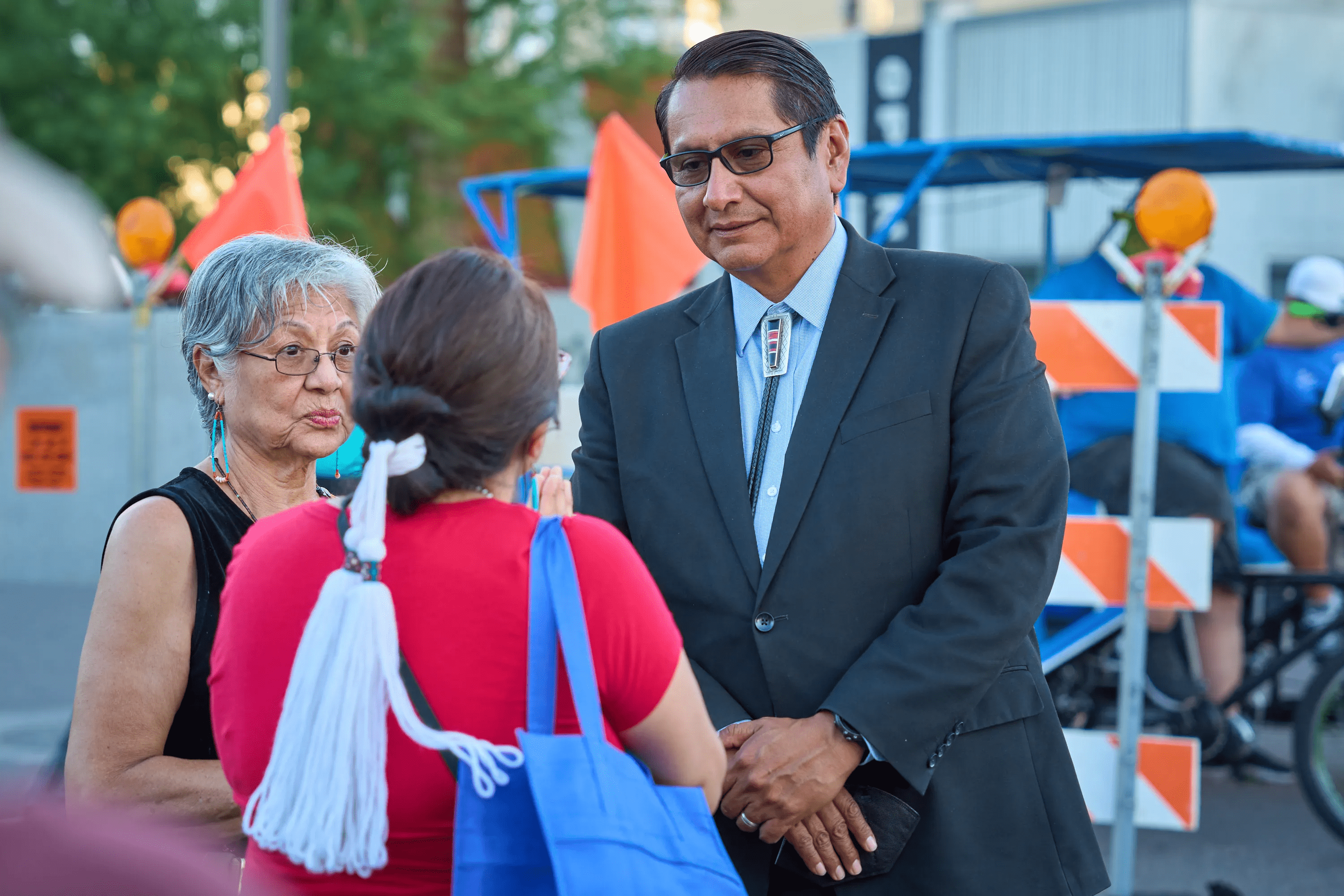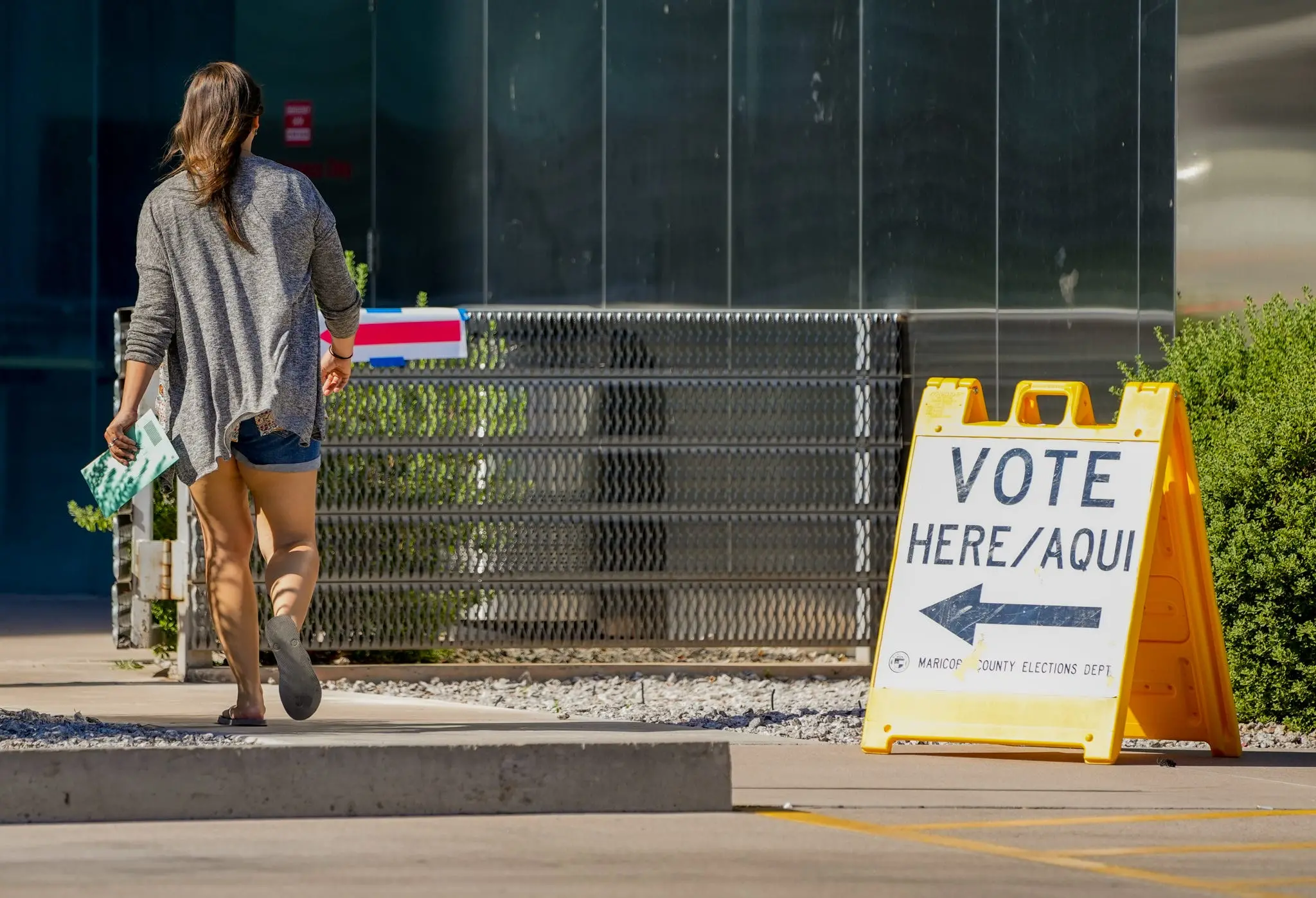
Search major Arizona candidates' websites or peruse campaign ads and you'll find positions on topics ranging from water to law enforcement and the border. But one issue receives only mixed levels of attention, even as it grows more important in policymaking: the roles of tribes across Arizona.
The influence of the 22 tribal nations in Arizona is clear: They control more than 40% of the state's Colorado River water rights. About 28% of the state's land base is tribal land. More than 385,600 Native people call Arizona home, the third-largest population of Native peoples in the United States. About 125,000 of them live in the Phoenix metro area and come from many other tribes in the U.S.
Most major highways run through tribal lands. Tribal gaming operations shared about $138 million with state and local governments in 2021 and support more than 38,000 jobs. The second-biggest employer in Mohave County is Grand Canyon West, owned and operated by the Hualapai Tribe.
Yet a search of major candidates' websites and social media feeds found that only a few mention anything related to tribes.
Arizona governor
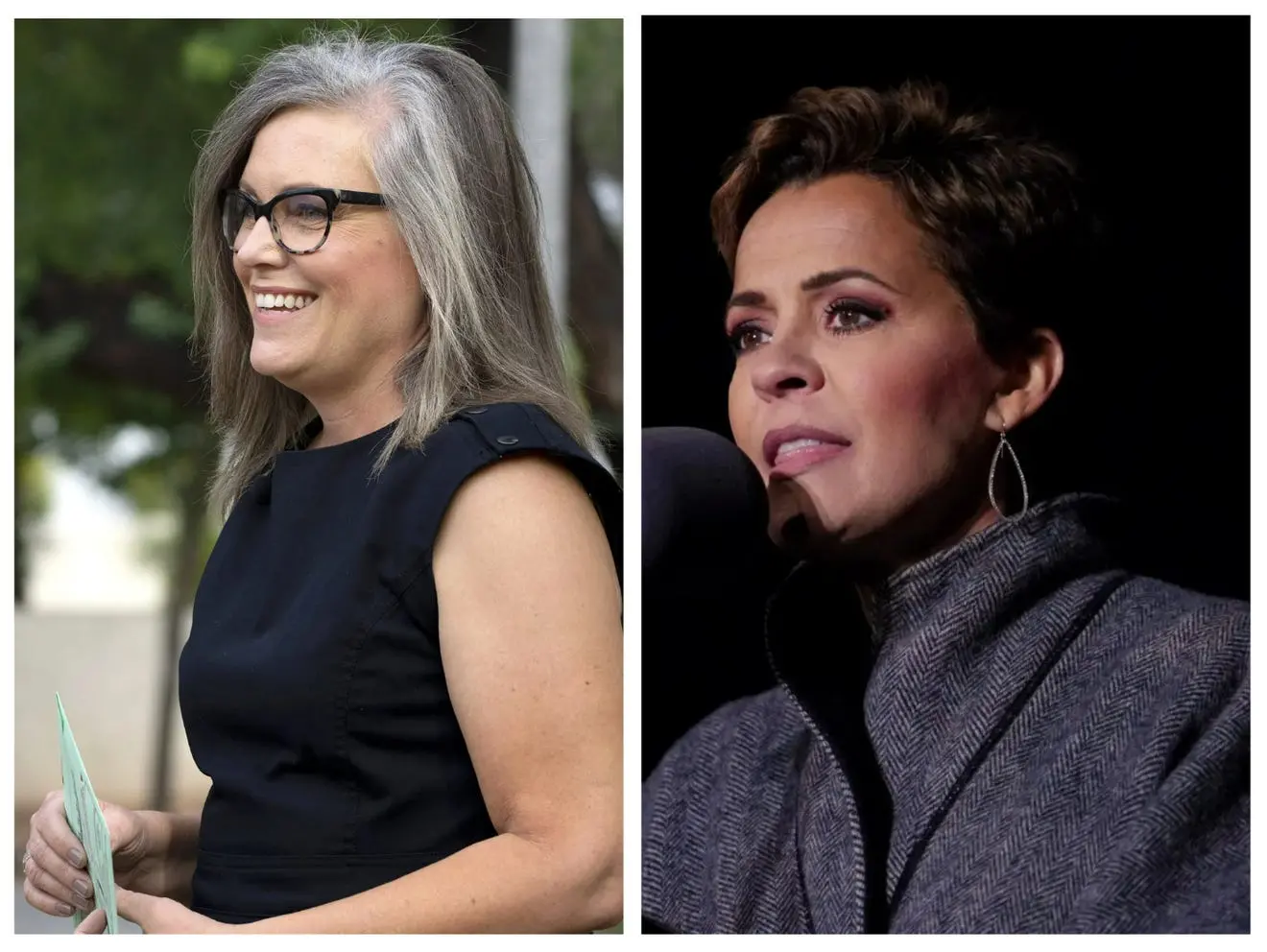
GOP candidate Kari Lake included a reference to tribes in her water policy statement. In addition to strategies like increasing surface water storage, managing watersheds and expanding water reuse, Lake said that if she's elected, her administration would support "responsible transfer of water rights, especially working with the various tribal nations throughout Arizona."
Some tribes are working to lease water to cities, while others continue to wait for settlements that would finalize water rights.
The Arizona Republic reached out to Lake's campaign advisors to clarify her statement about transferring water rights, but has not yet received a response.
Lake's Democratic opponent Katie Hobbs released a nine-page policy paper on how she would engage with tribes. Some of her strategies would include greater investment in tribal economies, support for water rights settlements for tribes that have not yet finalized their claims, more intergovernmental cooperation on addressing murdered and missing Indigenous women and persons, and increasing access to health care.
Hobbs also has featured tribal leaders on her social media feeds. Lake's social media feeds have yet to feature anything related to tribes, though one tweet earlier this year stirred anger among Indigenous leaders and another, by a campaign aide, drew condemnation.
Mike Woestehoff, a Navajo Nation member and Lake supporter, tweeted pictures that he said was part of Lake's outreach to Native communities, including a September appearance with members of the Native American Fatherhood and Families Association talking with Native people in Heber.
Amy Fa'atoafe, the association's executive director, said she was impressed that the campaign had reached out to them to set up a meeting after being turned down by others.
"We got to meet with her even though she's very busy," she said. "I like that she has several Native American groups she's been reaching out to, to understand how to serve Native American communities."
Fa'atoafe, who has heritage in the Navajo Nation and the Hopi Tribe, said Lake told the group she wants to bring business to rural communities, which also includes tribal communities. "I was impressed with what she said."
The Lake campaign did not confirm or discuss this or other outreach efforts.
U.S. Senate
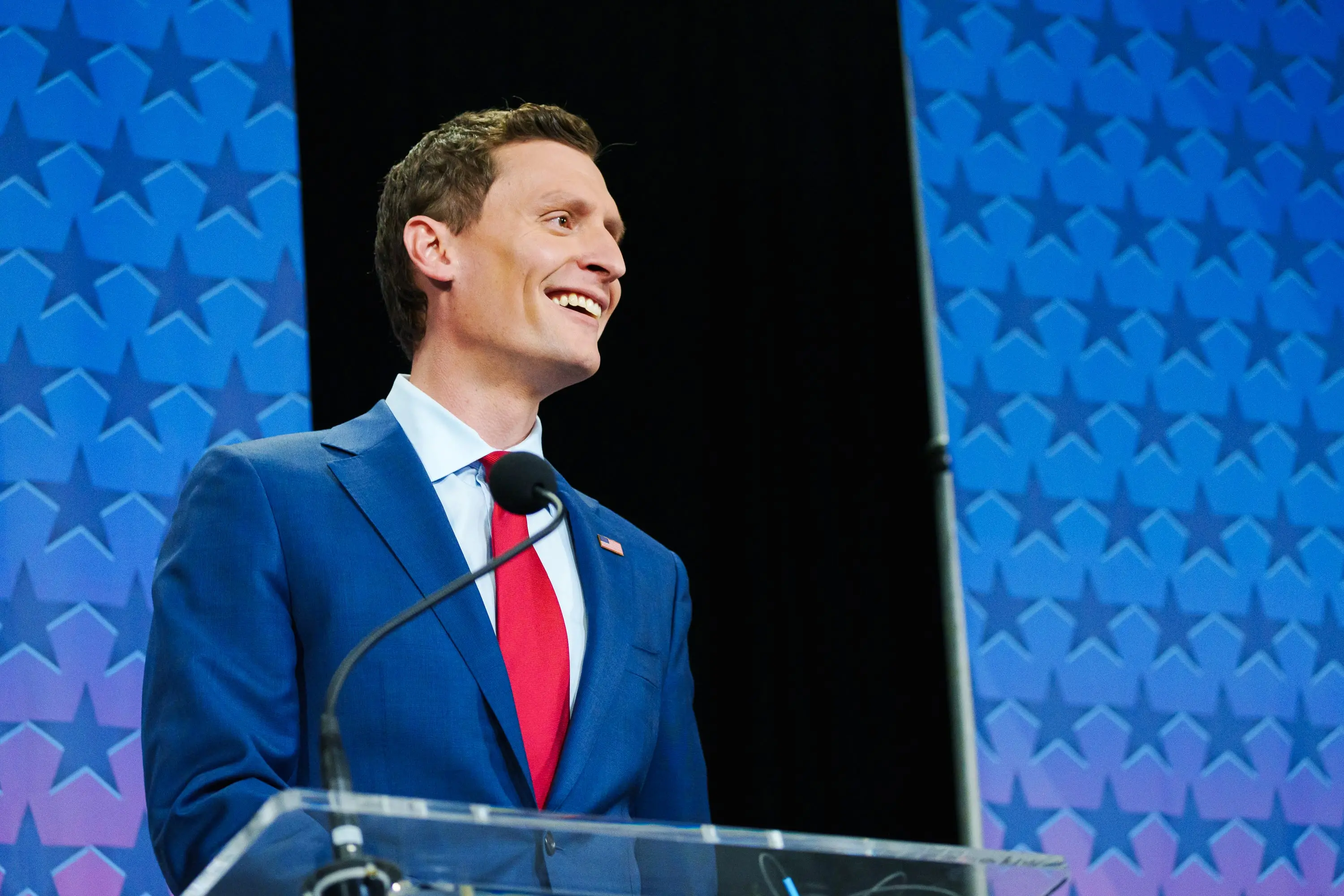
The race between incumbent Sen. Mark Kelly, a Democrat, and GOP challenger Blake Masters is also important to tribes, since the federal government holds trust responsibilities for tribes and tribal members. Congress also plays a major role in funding and legislation for tribal programs, including water settlements for the tribes in Arizona that have yet to finalize their rights.
"I’ve met with many of our great tribal leaders, and when I’m in the Senate, I look forward to finding common ground and voting on legislation that helps all Arizonans including our tribes," Masters said in an emailed statement. None of this can be found on Masters' website.
He said that, if elected, he would address issues ranging from addressing the state's water crisis to crime, drugs and health care. Masters also said that "insane" federal regulations account for at least some water issues.
"Why on Earth wouldn’t we let tribes sell their water to our state government for example?" he said.
Some tribes have agreed to lease water to cities or help with the state's drought plans, but they retain their rights.
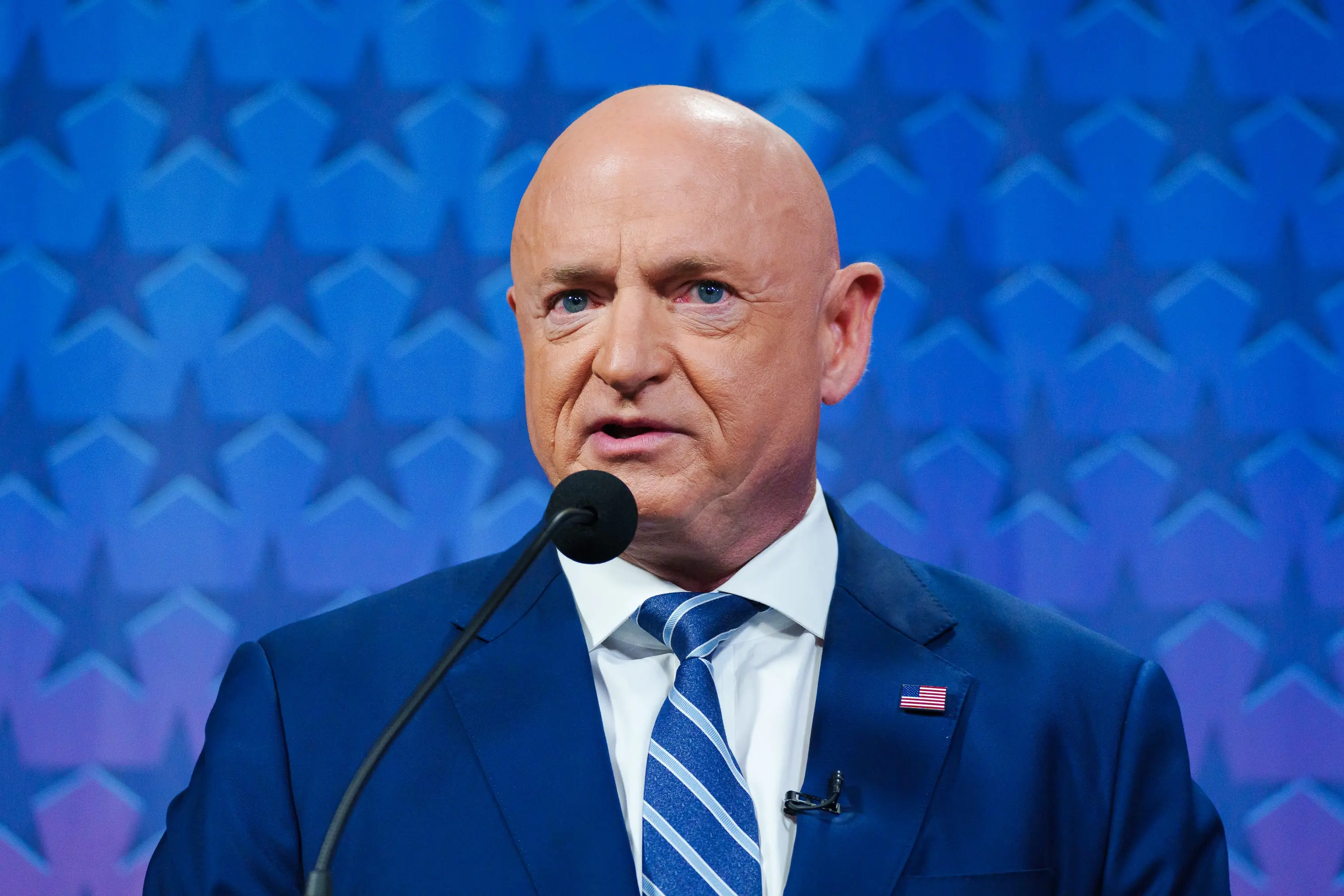
Kelly, the incumbent, said access to water remains critical for tribes. He said he's delivered funding to finalize two tribal water settlements and supports stability for local water projects by expediting tribal water settlements. He's also cosponsored legislation to finalize the Hualapai Tribe's settlement. And, he said, he's helped make the expansion of Interstate 10 through the Gila River Indian Community possible.
Some candidates have kept their outreach to Indian Country nearly invisible while others put their visits front and center.
Masters' campaign did not say which tribal leaders he had met with.
Kelly's campaign said he has visited at least six tribal nations throughout the state in the past two weeks, including Tuba City in the Navajo Nation, the White Mountain Apache Tribe and the Tohono O'odham Nation.
He and Hobbs marched in the Navajo Nation Fair Parade in August. Hobbs has also visited some tribal communities, including the Salt River Pima-Maricopa Indian Community.
Courting the Native vote
One election expert attributes the dearth of information from candidates to a lack of staff versed in tribal issues.
"It may be hard to find the caliber of campaign staff versed in Native issues, especially for Republicans," said Kris Beecher, an attorney with Phoenix law firm Dickenson Wright.
That's because many Native people lean to the Democrats, although at least one tribe, the Hopi Tribe, tends to skew Republican.
Beecher said candidates are also largely uneducated in Native issues.
"Usually the first time they get hit with tribal issues is when they get into office and their staff hands them legislation concerning tribal matters," said Beecher, a member of the Navajo Nation. "That's when they have to take a crash course."
He said that's because Indigenous history, governmental structures and how tribes fit into the federal system aren't taught. Many students don't encounter tribal histories and issues for the first time until law school, he said.
Doug Cole, CEO of the public affairs firm HighGround, said tribal issues can be very complex.
"The importance of the Native American nations is immense," he said. The tribes' influence due to their senior water rights is on the rise, he said, and gaming, transportation, health care and other issues are also complicated.
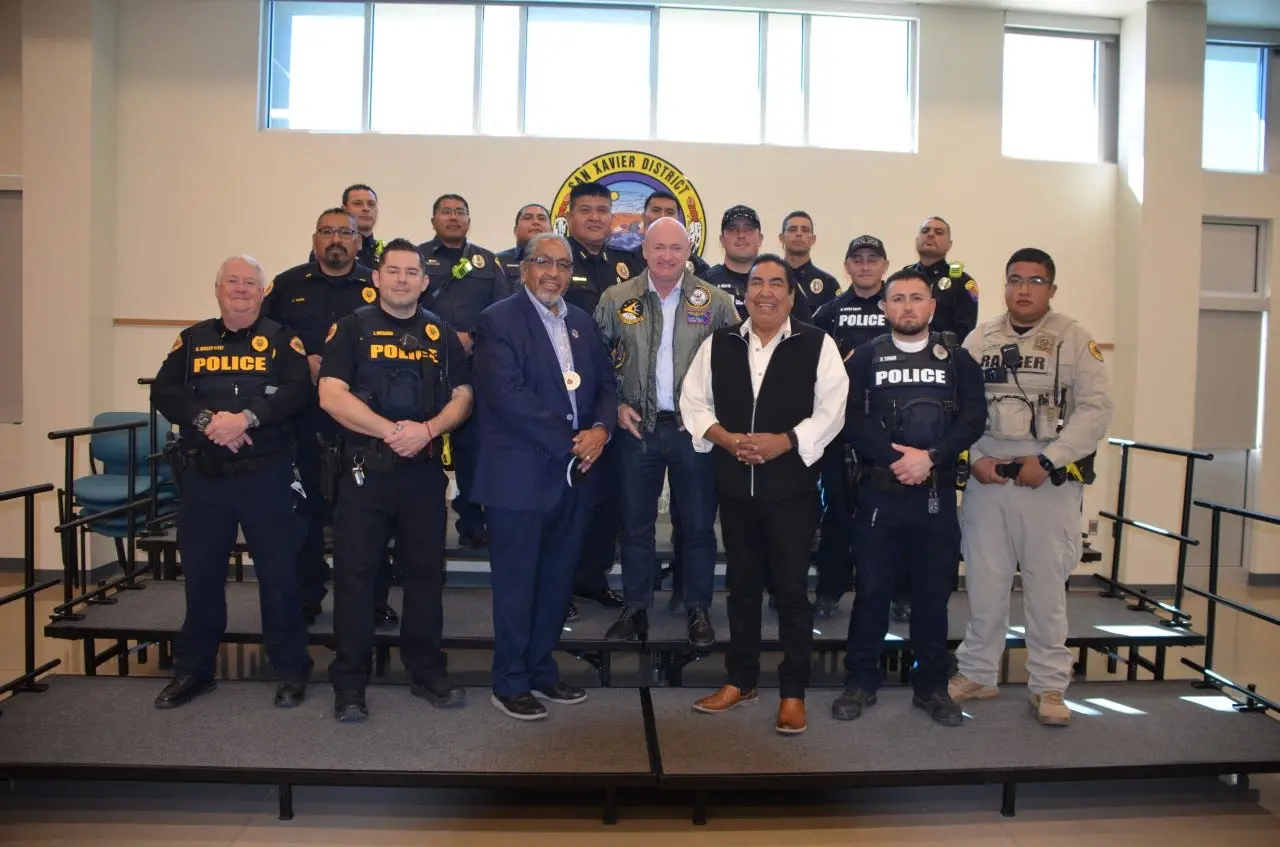
HighGround and two television stations, KTVK-TV and KPHO-TV, released a poll Oct. 17 that found the governor's race to be a statistical dead heat. Although Kelly still leads Masters by about 2.5 percentage points in the Senate race, the poll showed that the gap is closing. A third statewide race, for Secretary of State, is also neck-and-neck, according to the poll.
Those razor-thin margins mean every vote will count, Cole said.
When he ran campaigns for Republican candidates, including former Gov. Fife Symington, Cole said, he always established a Native American strategy. He recounted that, in 1994, he produced and purchased radio ads in Navajo to be aired over Window Rock radio stations KTNN-AM and FM, known as the "Voice of the Navajo Nation," and ran tribal-centric ads in Flagstaff.
In addition to adding tribal history and civics to Arizona classrooms, Beecher said, tribes may want to create an intertribal group that monitors legislation and gives state legislative staff and members experts to turn to in determining how proposed legislation would affect Indian Country. Beecher saw the lack of experts firsthand when he served as an intern at the Legislature during law school.
Some candidates still don't care about Native issues, Beecher said, even though tribes are such an integral part of the state's history and economy.
"It's frustrating," he said. His remedy for that: more Native people running for office, even when the position doesn't directly lie within tribal land. "We've got 125,000 Native people who live in the Phoenix area alone. We should have people running for school boards, county positions, water districts.
"That's the best way we can be in the room, not just sitting in the background."
"Tribes are an integral part of the state," said Cole. Republicans like John McCain, Barry Goldwater and Richard Nixon were popular and worked with Native American tribes and nations to accomplish policy goals.
"As a fourth-generation Arizonan, I know tribes are actually part of the fabric of our state and should be part of every political campaign in my book."
Coverage of Indigenous issues at the intersection of climate, culture and commerce is supported by the Catena Foundation.


